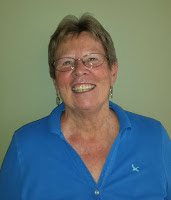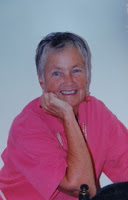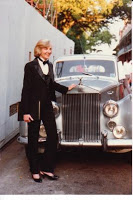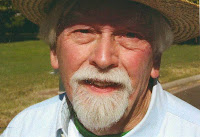There are many different nuances to the meaning of acceptance. I’ve always been at ease with “giving approval to others” and put great effort into understanding their points of view and actions even when I don’t agree. However, I’ve struggled with the aspect which involves “believing in favorably” when it has come to myself. It is only recently after experiencing some difficult situations and engaging in years of therapy that I can truly say I accept myself.
As a young child I struggled with a positive sense of self due to my lack of connection with my mother. I sensed her depression after the death of my brother and somehow came to the conclusion it was my responsibility to make her happy and in so doing I lost myself to her needs. I did not establish a strong sense of who I was. Now this is not to say that I was an unhappy child. I had many friends at school and in the neighborhood and thought of myself as a capable kid. At home I fought continuously with my brothers and often felt left out because they sided with each other against me, they enjoyed their commonalities of being males and in sharing a bedroom with one another. I did not have a safe place at home.
I was happiest when engaged in sports because this was the one place I felt a sense of wholeness. However, society at the time did not for the most part accept tomboys… especially as I entered the teen years. Furthermore, an unconscious part of me realized I was different sexually as well. It was at this point I began to crumble inside due to my lack of an acceptance of self and the lack of support from my environment. My parents were not negative about who I was- I think it was more of a benign neglect. But I certainly did not go to them to help me through the hard times. It was a struggle I had to face on my own. All outward appearances reflected a very confident young lady, only a very keen observer of human nature would have known otherwise. I recall a situation in junior high which reflected this dichotomy of how I felt inside and how I was perceived by others. In eighth grade we had elections within each of our homerooms for student council members. I was in a classroom of the popular kids- the future high school queens and kings, athletes, and honor students. I was nominated by one of my classmates along with three or four others and was directed to go to the hallway while voting took place to determine who would represent our class. When we came back into the classroom the teacher announced I would be our representative. Although I was pleased with the result I was very frightened by the outcome as I felt somehow I had been set up…if I allowed myself to believe my classmates really wanted me then they would all start laughing and tell me it was just a trick…they just wanted to be able to laugh at me. It wasn’t until many years later I realized they really did like me and wanted me to be their leader, they accepted me even though at the time I did not accept myself. I had learned how to play the game of appearing to be confident to avoid any inquiries as to my state of mind, I was afraid to let anyone know how fragile I was… to do so was too vulnerable- it was scary. I was very good at accepting others and helping them to feel good about themselves but I didn’t have anyone doing the same for me, largely due to the fact I never let anyone know I needed that help.
In college I was very confident in my field, I felt I was receiving a very good education, and I was going to be successful. I had a girlfriend that loved me very much and was very supportive, but I was still very confused about my worth as an individual. I could not look at myself in the mirror and say I really like you, you are a good and valuable person. Within two years I had moved from an awareness of knowing I was different to “you are a homosexual”. And along with this change in knowledge came an awareness that I was socially deviant. I, who had always gained my positive sense of self from helping others feel better about themselves, became a person who was to be feared. I felt totally isolated at times from those around me. I really needed to go to the student health center to see a counselor, which my girlfriend Connie was trying to get me to do and was even willing to arrange for me, but I couldn’t bring myself to go as I was afraid of being in the waiting room and having others staring at me and wondering what was wrong with me. I felt like I had a contagious deadly disease which I had to keep to myself so no one else would catch it- I think it came to be identified later as “the homosexual agenda”. It’s probably good I didn’t go for help as the mental health field at the time would have determined my homosexuality was a mental illness which needed fixing. This is not just a projection on my part, as I have mentioned in a previous story that a few years later when I did finally get up the courage to see a psychiatrist he told me shock treatment might cure me of my homosexual urges.
Once out of college I had far more acceptance of myself as a professional than I did as a person. The love and acceptance I received from my friends did not penetrate my own lack of self-acceptance. I felt like a fraud. There were very few people who were aware of my sexual preference which I think contributed to my feelings. I was liked for who I appeared to be, not for who I really was. I thought if people found out I was gay I would no longer be a “good person”. I would become this person with an agenda who was out to seduce every straight female I met. I wouldn’t even let myself look at women with any awareness of their physical attractiveness- I kept those thoughts buried so deep they never saw the light of day. The closets I hid in for twenty years created a dungeon in which necrosis of my soul and spirit took place.
I made a great deal of progress towards self-acceptance in the twenty-seven years I was with Lynn. But my self-acceptance was based a great deal on the two of us as a couple and the family we had created with our children. I was very proud of us and glad to be out of the closet. But when Lynn decided to leave the relationship for personal reasons all my old abandonment issues from childhood came rushing back. I barely made it through the dark days as I had no good feelings about who I was, I didn’t know I had the strength to make it through this soul wrenching sadness, and I certainly didn’t have the desire to. I’m not really sure where the light was that led through this dark, damp, miserable tunnel. I do know being needed by fourteen 3rd and 4th grade students gave my life the purpose I needed at the time to survive. With this purpose and intense, well administered psychological care from Vivian Schaefer I was able to regain my footing and slowly make strides to reach a point of self-acceptance I had never before had. I gained an awareness that the person other people had seen and loved for all those years really was who I was. With this self-acceptance I am the happiest I have ever been. I am looking forward to attending a solstice ceremony tomorrow morning- it will be an emotional event for me as I know the importance of living in the light. For me it is symbolic for an acceptance of myself, full on exposure to the sun with no closets to block the light, be they closets built by others or by myself.
© 21 December 2015






